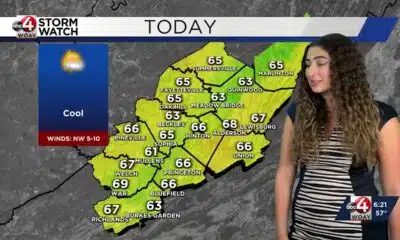News from the South - Texas News Feed
Is your insurance on the line if your robotaxi ride gets in a crash?
SUMMARY: In Austin, questions about liability in crashes involving robotaxis have arisen. If a driverless vehicle, such as Tesla’s, is at fault, passengers may be liable, particularly in Level 2-3 vehicles where driver input is required. Texas laws, including Senate Bill 2205 and House Bill 3026, regulate autonomous vehicles, with state control over rules. Level 4 vehicles, like Waymo’s, may not hold passengers accountable, as these cars can operate without a driver. Passengers in such vehicles are not responsible for accident-related procedures, with the company providing insurance contact details. As of May 21, Waymo is the only robotaxi service in Austin.
The post Is your insurance on the line if your robotaxi ride gets in a crash? appeared first on www.kxan.com
News from the South - Texas News Feed
It's a love story: Taylor Swift, Travis Kelce announce engagement
SUMMARY: Taylor Swift and Kansas City Chiefs tight end Travis Kelce are engaged, announcing it on Instagram with a photo of Kelce proposing in a garden and showcasing Swift’s dazzling “Old Mine brilliant cut” ring. The couple, both 35, began dating in 2023 after Kelce attended Swift’s Eras Tour. Despite early challenges, including Kelce’s unsuccessful attempt to give Swift a friendship bracelet with his number, their relationship blossomed. Swift has supported Kelce at numerous games, including two Super Bowls, while Kelce frequently attends her concerts. Their relationship has garnered massive media attention and was featured in ESPN’s documentary “The Kingdom.” Kelce’s parents praise their bond as genuine and deserving.
The post It's a love story: Taylor Swift, Travis Kelce announce engagement appeared first on www.kxan.com
News from the South - Texas News Feed
We're excited for National Dog Day!
SUMMARY: To celebrate National Dog Day, the studio welcomed three dogs: Mac, Sandy, and Leo. Sandy sports a playful lipstick kiss from Kim Castro, while lively one-year-old Leo kept everyone entertained. The dogs’ owners, also producers, shared that it’s usually breakfast, walk, or nap time for them. The studio enjoyed the furry therapy vibe and encouraged viewers to treat their dogs with special offers from PetSmart (buy one, get one 25% off on treats), Lazy Dog Restaurant and Bar (coupon with dog bowl and entree), and free Puppuccinos from Starbucks. Viewer-submitted dog photos added to the joyful celebration of our furry friends.
We had in-studio guests to help us celebrate.
News from the South - Texas News Feed
'Bathroom bill' advances in Texas House days after tensions flared at hearing
SUMMARY: A Texas House panel approved Senate Bill 8, limiting transgender people’s use of bathrooms in government buildings, marking the first House advancement of a “bathroom bill” in over eight years. The bill, backed by Gov. Greg Abbott, passed 9-3 in committee and now heads to the House floor. SB 8 imposes penalties on institutions allowing restroom use not matching sex assigned at birth and extends restrictions to schools, universities, shelters, prisons, and jails. Opponents warn it promotes harassment and violence, while supporters cite protection of women and children. The bill includes measures to shield it from legal challenges. Lawmakers must pass bills by Sept. 13.
The post 'Bathroom bill' advances in Texas House days after tensions flared at hearing appeared first on www.kxan.com
-
News from the South - Kentucky News Feed6 days ago
First of its kind clinical trial offers new hope for Kentuckians at risk of dementia
-
News from the South - Arkansas News Feed6 days ago
‘Alligator Alcatraz’ probed by Dems as ICE detention centers multiply in states
-
News from the South - Arkansas News Feed7 days ago
Cities across the US are embracing AI guidelines for local government workers
-
News from the South - Alabama News Feed6 days ago
Grants to boost local emergency alert systems in question as public media agency closes
-
Our Mississippi Home6 days ago
MSU Unveils Mixed-Use Development Featuring Boutique Hotel, Cultural Landmark
-
News from the South - Arkansas News Feed5 days ago
New I-55 bridge between Arkansas, Tennessee named after region’s three ‘Kings’
-
Local News6 days ago
Winged ferry that glides like a pelican tested for coastal transportation
-
News from the South - West Virginia News Feed6 days ago
WV groups call on Morrisey, McCuskey to push against end of federal solar program









































